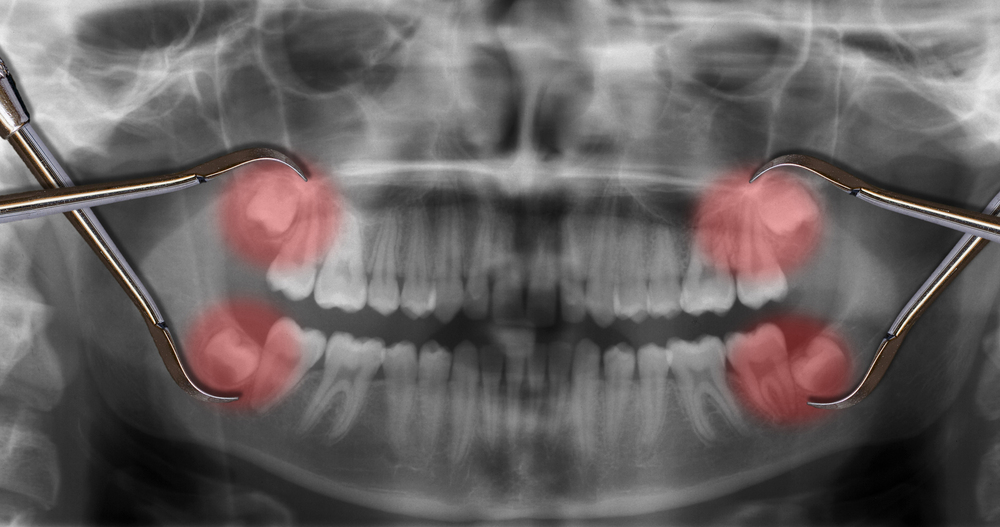
Wisdom teeth, also known as third molars, are the last set of molars that most people get in their late teens or early twenties. While some individuals have no issues with their wisdom teeth, many experience problems that necessitate their removal. Removing wisdom teeth can be a significant decision, often driven by various signs and symptoms indicating the need for extraction. In this article, we will explore the key indicators that suggest it’s time to consider removing wisdom teeth, and we will also discuss the role of proper nutrition, including vitamins for your teeth, in maintaining oral health during this process.
1. Pain and Discomfort
One of the most common signs that you may need your wisdom teeth removed is persistent pain or discomfort in the back of your mouth. This pain can be due to the teeth not having enough room to emerge properly, leading to impaction. Impacted wisdom teeth can cause swelling, tenderness, and even headaches. If you experience ongoing pain, it’s crucial to consult with a dentist who can evaluate your condition and recommend the best course of action.
2. Swollen Gums
Swollen and tender gums around the wisdom teeth area can be a clear indicator of potential problems. This swelling can occur when the wisdom teeth partially emerge through the gums, creating a flap of gum tissue that can trap food and bacteria. This can lead to infections and gum disease. If your gums are frequently swollen or bleeding, it’s essential to seek dental advice to determine if removing wisdom teeth is necessary.
3. Frequent Infections
Wisdom teeth that only partially emerge or grow in at an angle can create pockets where bacteria can thrive, leading to frequent infections. These infections, known as pericoronitis, can cause significant pain, swelling, and difficulty opening your mouth. Recurrent infections are a strong sign that it might be time to remove your wisdom teeth to prevent further complications.
4. Damage to Adjacent Teeth
When wisdom teeth don’t have enough space to grow correctly, they can exert pressure on the adjacent teeth. This pressure can cause damage to the surrounding teeth, leading to cavities, misalignment, and even tooth loss in severe cases. If you notice changes in the alignment of your teeth or new cavities forming around the wisdom teeth area, it might be a sign that extraction is necessary to protect your overall oral health.
5. Cysts and Tumors
In rare cases, impacted wisdom teeth can lead to the development of cysts or tumors in the jawbone. These growths can cause serious damage to the jawbone, teeth, and nerves. Regular dental check-ups and X-rays can help detect these issues early on. If your dentist identifies any abnormal growths around your wisdom teeth, removing wisdom teeth may be recommended to prevent further complications.
6. Difficulty Cleaning
Wisdom teeth located at the very back of your mouth can be challenging to clean properly. Their position makes it difficult to reach them with a toothbrush and floss, leading to poor oral hygiene. If you find it hard to maintain cleanliness around your wisdom teeth, it can increase the risk of cavities and gum disease. In such cases, dentists often recommend extraction to improve overall oral hygiene.
The Role of Nutrition: Vitamins for Your Teeth
Maintaining good oral health isn’t just about regular brushing and flossing; it also involves proper nutrition. Certain vitamins and minerals are essential for keeping your teeth and gums healthy, especially when dealing with wisdom teeth issues.
Vitamin C
Vitamin C is crucial for gum health. It helps in the production of collagen, a protein that supports the structure of gums. Consuming sufficient vitamin C can reduce inflammation and promote healing, making it an essential nutrient when dealing with wisdom teeth problems. Citrus fruits, strawberries, bell peppers, and broccoli are excellent sources of vitamin C.
Vitamin D
Vitamin D plays a vital role in calcium absorption, which is necessary for strong teeth and bones. Adequate vitamin D levels can help in maintaining healthy teeth and reducing the risk of infections. Sun exposure, fortified dairy products, and fatty fish like salmon are good sources of vitamin D.
Calcium
Calcium is well-known for its importance in maintaining strong teeth and bones. Ensuring you get enough calcium can help keep your teeth resilient, especially when they are under pressure from emerging wisdom teeth. Dairy products, leafy greens, and almonds are rich sources of calcium.
Vitamin K2
Vitamin K2 works synergistically with vitamin D to ensure calcium is properly utilized in the body. It helps in directing calcium to the bones and teeth while preventing it from depositing in the arteries. Fermented foods like sauerkraut and natto, as well as cheese and egg yolks, are good sources of vitamin K2.
Recognizing the signs that you need your wisdom teeth removed is crucial for maintaining good oral health. Persistent pain, swollen gums, frequent infections, damage to adjacent teeth, cysts or tumors, and difficulty cleaning are all indicators that it might be time for extraction. Additionally, ensuring you get adequate vitamins for your teeth, such as vitamin C, vitamin D, calcium, and vitamin K2, can support your oral health during this process. Always consult with a dental professional to determine the best course of action for your specific situation. Taking timely action can prevent more severe complications and help you maintain a healthy, pain-free smile.



